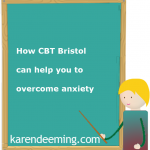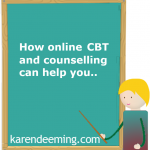
Do you have a hectic lifestyle and want to make positive life changes but precious little time to make them?
Over the next few months, I’ll be sharing with you the mindfulness, self help and personal development techniques and tips that helped me to:
• escape the corporate cage, that is, my well-paid secure job and hectic lifestyle in London
• move from London to live in the idyllic countryside and do my dream job as a successful Psychotherapist, Coach and Mindfulness Teacher helping 1000s of clients at my Liverpool Street and Harley Street Practices and nowadays at my online, Bristol and Somerset Practices sometimes advising film Directors, such as Mike Leigh, on the authenticity of film narratives.
Though I am now doing my dream job, living in a delightful Somerset village and have many tools at my disposal, life is occasionally still tough so I’ll also send you some tips to help you remain motivated, and focused when you are feeling stuck, overwhelmed, lost or you are falling victim to ”l’m too busy and don’t have enough time” and procrastination trap.
For those of you who didn’t get the opportunity to read tips one and two of my blog for people with hectic lifestyles who want to make positive life or career changes see:
http://www.karendeeming.com/index.php/2015/06/19/tip-three-for-people-with-hectic-lifestyles-who-want-to-make-positive-life-or-career-changes/
Tip for week four, stop comparing yourself to other people
Before I became a Psychotherapist, I was often plagued by my inner critical voice or my negative chatterbox that often went something like this:
• I wish I could stop comparing myself to other people
• If only I could overcome these jealousy and envy feelings because they hold me back
• Why can’t I just accept myself for who I am?
• Why do I talk myself out of doing incredible things because I am afraid to discover if I’ve got what it takes?
• Why haven’t I got as many facebook likes or twitter followers as my friends or business competitors?
• Why am I less attractive than some of my friends?
Sound familiar?
Not surprisingly, in today’s quick fix, target-driven, celebrity, facebook, twitter, botox obsessed society, this increasingly common epidemic “social comparison” is sweeping the world, an extreme envious, keeping up with the Joneses and it’s causing burn out, anxiety, depression, addiction, low self esteem, envy, procrastination to name a few.
It’s about comparing status, comparing facebook likes and twitter retweets, comparing wrinkles, comparing schools, comparing bra and pec sizes, comparing gadgets, comparing academic ability the list goes on and it’s spreading fast!!! It’s tempting to think that this is a 21st century virus but it’s been with us since the beginning of time.
As a result, we are constantly making self and other evaluations across a variety of perimeters such as: attractiveness, wealth, intelligence, and success.
For most of us, the virus will continue from the cradle until the grave.
Let me give you an example. Though you want to experience more adventure, happiness and purpose in your life you compare yourself to gurus and talk yourself out of doing incredible things because you are afraid to discover if you’ve got what it takes.
Don’t get me wrong comparing yourself to other people from time to time can be healthy as it can set a benchmark for excellence and sometimes provide us with the inspiration we need. However it’s when it becomes obsessive and a regular negative thinking pattern that infects personal relationships with our partners and children and paralyses us to attempt anything new that it becomes a problem.
I, Karen Deeming, You Revolution Founder am now doing my dream job as a successful Consultant, Psychotherapist and Lecturer advising film Directors, such as Mike Leigh, on the authenticity of film narratives involving psychotherapy. But it wasn’t always like that, I too was often crippled by the comparing virus in my well-paid secure corporate job until one day I stopped comparing and started daring:
I dared to take risks, I dared to leave my well paid corporate job and do a MA in Psychotherapy, I dared to leave Yorkshire for London and I dared to fulfill my dreams and passions. Most significantly though, I dared to drop my mask and accept myself for who I am.
How can you stop comparing yourself to other people?
It may seem a mammoth task and a huge mountain to climb right now, however, here are some tips to help you overcome comparing yourself to other people:
Firstly acknowledge that comparing yourself to others is a bad habit.
The media and Society often portray people with flawless skin, pure white teeth, slim bodies, huge houses and expensive cars as being the happiest and most successful people on the planet. I can, however, assure you that in my work as a Therapist and in my life before counselling and coaching this has often proved not to be the case. If it were true that these characteristics guarantee a passport to living a happy, fulfilling and healthy life, why did Mick Jagger’s girlfriend, L’Wren Scott a beautiful and highly successful fashion designer commit suicide then?
Society similarly projects men with flawless skin, six packs, and designer clothes with lots of women, as badges which promise men a lifetime of achievement and contentedness. If this is the case then again why did Michael Hutchence and Kurt Cobain kill themselves?
Lots of wealthy people and celebrities also adopt unhealthy behaviours such as excessive drinking, cocaine use and eating disorders so why’s that then?
Society is remarkably effective at brainwashing people into believing they should look a certain way, act a certain way, be a certain someone, when in reality every single one of us is different. Society pigeonholes people and wants you to believe that you have fewer rights to be happy because you do not fit an idealistic lifestyle. I believe this happens ‘toxic pigeonholing’ happens because it keeps the consumer tread mill in business, continually filling up the pockets of plastic surgeons, BMW and Mercedes, banks, estate agents and pharmaceutical companies who prescribe so called “happy pills”.
As activist Satish Kumar put it: “Society is obsessed with “BIG” big nation, big business, big schools but with bigness you lose humanity.”
Remember that it is only following the industrial revolution that we became materially focused and it clearly doesn’t seem to be working for the majority.
Comparing yourself to others, especially celebrities and top academics, is a fine way to throw your self-esteem down the drain as there will always be those who are ‘better’ than you, and those who are ‘worse’ than you.
So give yourself a break!!
Stop comparing and begin to celebrate your own unique talents and what makes you special. By constantly watching and focusing on what other people are doing and how they are looking, it takes away your own inspiration, style and creativity and you end up becoming a clone, a follower of fashion or a people pleaser. Is this how you really want to run your life? Me, I’d much rather be a pioneer than a late adopter or carbon copy of other people it’s much more liberating and fun.
Fear of failure is a huge block for developing to your full potential and can often result in regular bouts of putting things off and procrastination. Since I began to welcome mistakes and to tell myself there are no mistakes and that everything is a learning opportunity, my life and work outputs have significantly improved. When a child learns to walk stands up and falls down is that a mistake?
Learn how to accept yourself warts and all, focusing on your stengths and weaknesses rather than constantly striving to improve yourself.



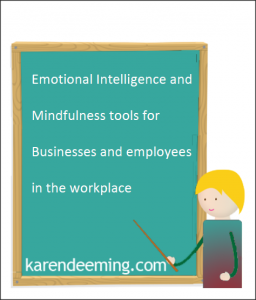
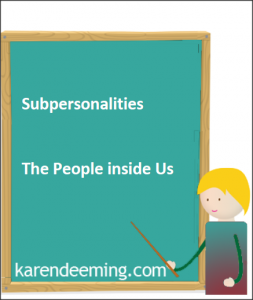


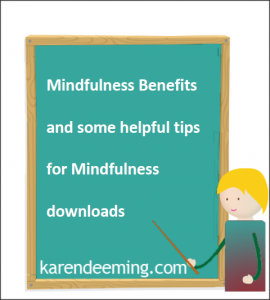
![Karen_Deeminga[1]](http://www.karendeeming.com/wp-content/uploads/2015/09/being-practice-self-portrait-e1541437891746.jpg) Welcome to my site. if you have any queries then please
Welcome to my site. if you have any queries then please
